Three months ago, they were high school seniors




Now, they're young adults in a changed world
Special Series
2020 Graduate Stories
The young people leaving high school this year enter a world reshaped by the COVID-19 pandemic, a surging economic crisis, and the protests roiling the nation. Recent high school graduates in Rhode Island shared their thoughts on the future with The Public’s Radio.
These stories were produced for the ear and meant to be listened to, please click the play buttons below each photo to hear them.
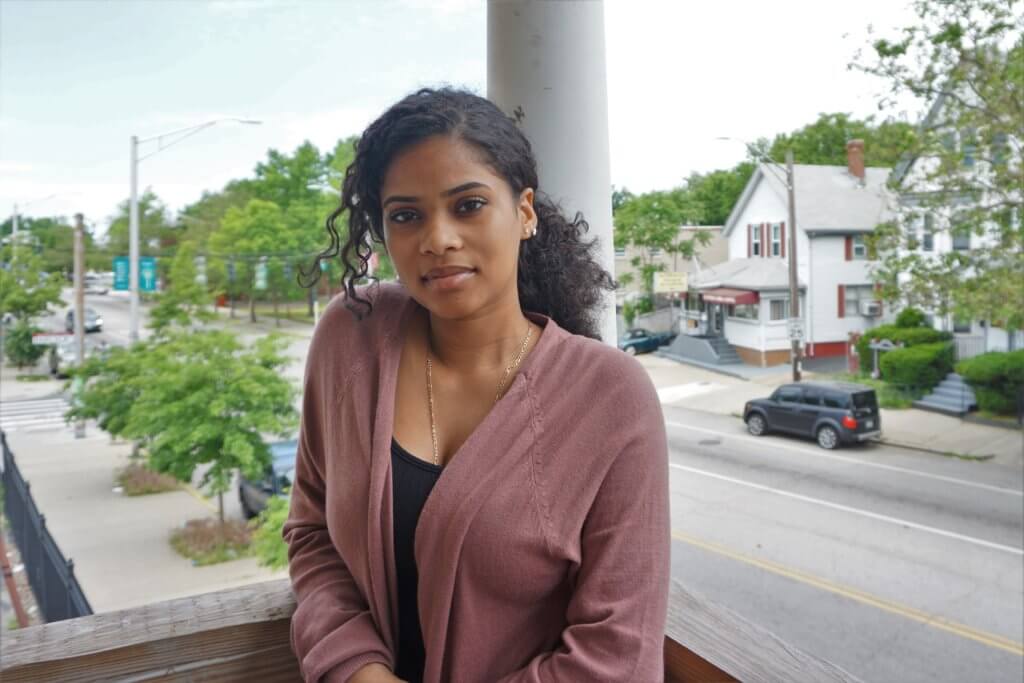
Celina Torres 18, Providence
It’s like everything’s just been thrown in my face. Last year, I was a kid. Now I’m a whole adult.
I realized that you have to go out there and get it, or it will get you. You really have to go out there and work, so that you don’t die because you’re poor.
My business is braiding. I also color, cut hair, and blow dry. I can’t book as many clients as I used to. You have a lot of people without haircuts in months. Everything is just slowing down. This is going to take the whole year I’m guessing or even more, which is the scary part.
I live on Broad Street [in Providence]. Everybody’s out here at all times, everyday. It’s affecting people, but at the same time, a lot of people are doing what they have to do.
My generation doesn’t understand, we don’t all have the same chances, the same opportunities. Poor people are supposed to stay poor, that’s how I think of it. That makes me feel horrible. We could all be successful, they just don’t give us the chance. Some of us will find it, and most of us will keep doing what our families are doing.
It is unfair, what’s happening now. That people of color are getting mistreated, like police brutality all around the world. It’s nothing new.
Don’t get me wrong, when I was young, I used to want to be a police officer, like I could make a change. But if I really wanted to make a change, I’d have to be like a lawyer or something.
I do have faith that it can change. I just don’t see it.
Honestly, I feel like it might be the worst year I’ve ever seen.
I’m still trying to wrap my head around the fact that I’m not going to have that first day of present college. I made that decision to step back and go to CCRI, that hurt me. I really lost a lot of motivation for myself. It’s not a bad thing. But what was going through my mind at that time was just like ‘I feel like I failed.’
I grew up on the north side of Providence. You’ve got a lot of violence going on in that community. It’s easier to pull you in versus, get away from it, escape it.
You really lose hope every month with something bad happening. This is not the first person who said ‘I can’t breathe’ and then lost their life. The way situations are now, my parents really don’t want to see me out. Be aware of your surroundings. Make sure you’re following the law to the fullest extent. Make sure there’s nothing that can make you look like a threat. You always have to move ten steps smarter. We can’t even jog in peace. We can’t graduate high school in peace.
We’re going to have to protest a lot if we want a future of everyone coming together as one. We’re not being taken serious enough. You know it might not happen in my generation or my little brother’s generation, or his kids’ generation. But I do have faith that one day, people will come to the understanding that there’s only one race. The human race.
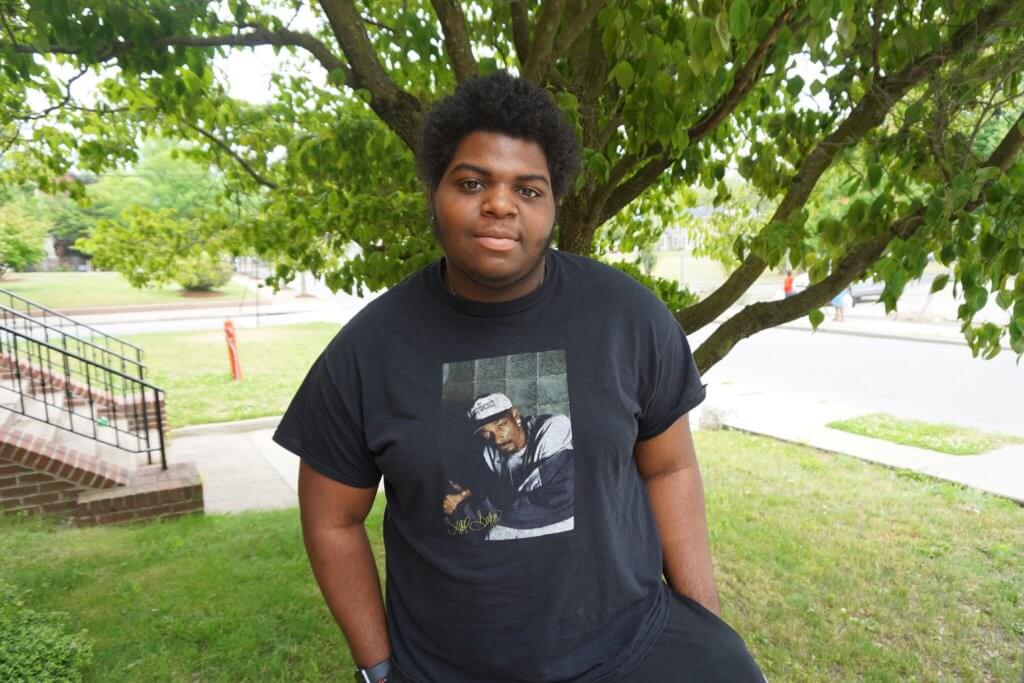
Kyle rogers 18, Providence
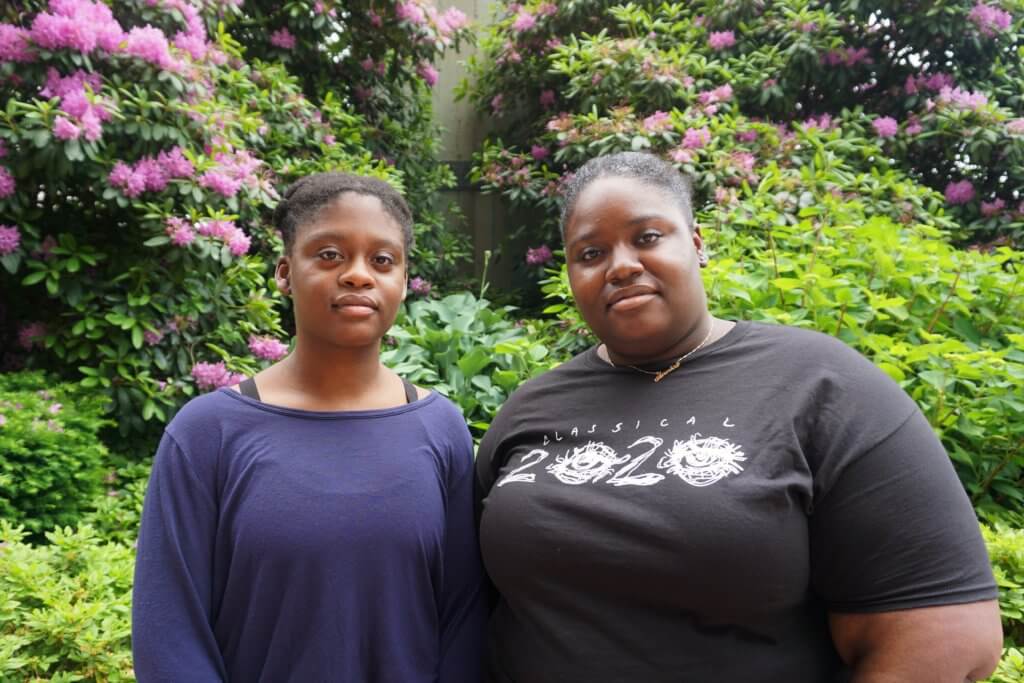
ayanna & Annica Rowe 17, Providence
These world events just show you, you shouldn’t depend on any system. Things can be turned upside down in a second.
ANNICA: We were expecting a shift from childhood to adulthood, but we’re experiencing a world shift at the same time. So I think that we’re having to navigate both of those at the same exact time.
AYANNA: I kind of lost faith in leaders when I saw that we weren’t ready for an epidemic like this. And I’m just wondering, do we really care about people?
ANNICA You see communities of color being disproportionately affected by this virus. Essential workers who happen to actually mostly be people of color; they’re working. But as long as they can provide and deliver your packages, you don’t really care about their overall health.
ANNICA: It speaks volumes that people are risking their health to go out and march with thousands of people. I like that we’re having this large conversation, because now we can more easily address institutions that kind of tolerate racism.
AYANNA: Everybody’s expected to succeed and thrive in these institutions, but not everybody can, because these same institutions are working to keep minorities and other people down. That’s kind of draining because you can’t just be free.
ANNICA: I feel like we’re being thrust out into the real world. It’s good in a way, though, because it’s up to the young people to change.
People are realizing that these things are real problems, whereas before some people were saying ‘oh it’s not affecting me’ but they’re starting to realize these are real issues.
I’m always the first one to tell people, ‘I’m a theater technician.’ It’s the coolest job on planet earth, at least I think so.
It’s something that’s been around for a long time and it will be around for as long as people crave live performance, which will be forever. Because it’s incomparable to anything you could get virtually. And that’s how I’ve come to feel over the pandemic.
We were working on a show which was about the African-American women who were at the helm of emancipation and the civil rights movement and things like that. And I was just thinking like, that play was relevant then, but it would be a hell of a lot more relevant right now.
I think we tend to leave people behind in this society because we value material things over people. I definitely think it has to do with class and race. When you go down and you actively oppress a group of people and you don’t make amends for decades, centuries even, and they protest peacefully and you do nothing.
So I’ve always been wary of institutions. I never considered myself someone who’s overly trusting of the government or the police. Eventually there’s going to have to be change. And whether it’s the system being rebuilt, or its actual, real change in the system, it’s going to happen eventually.
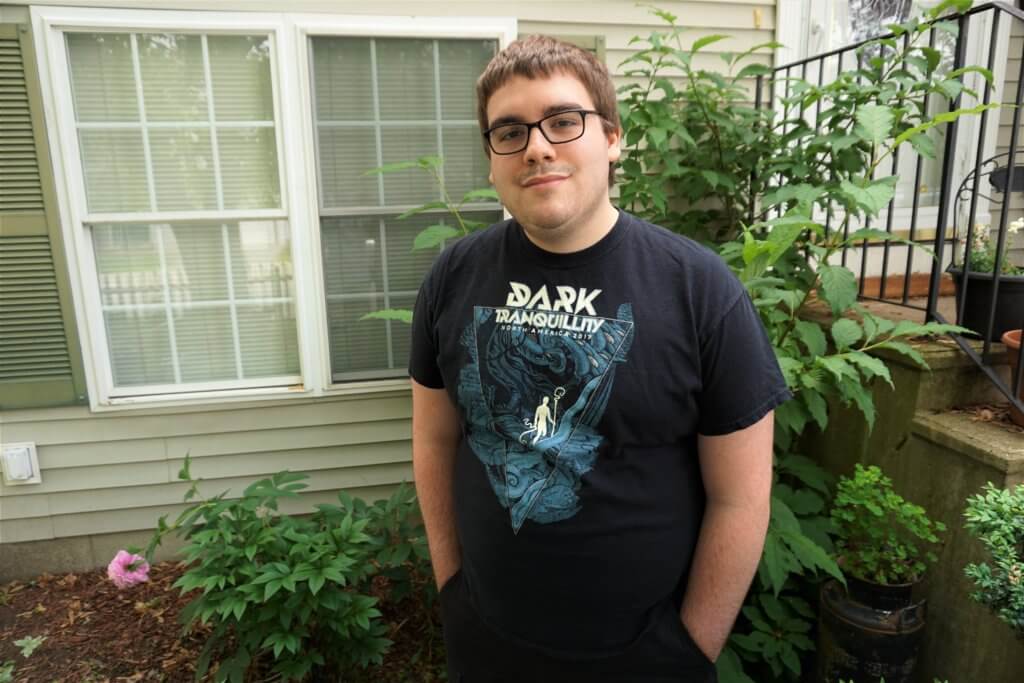
todd Deslauriers 18, CEntral falls
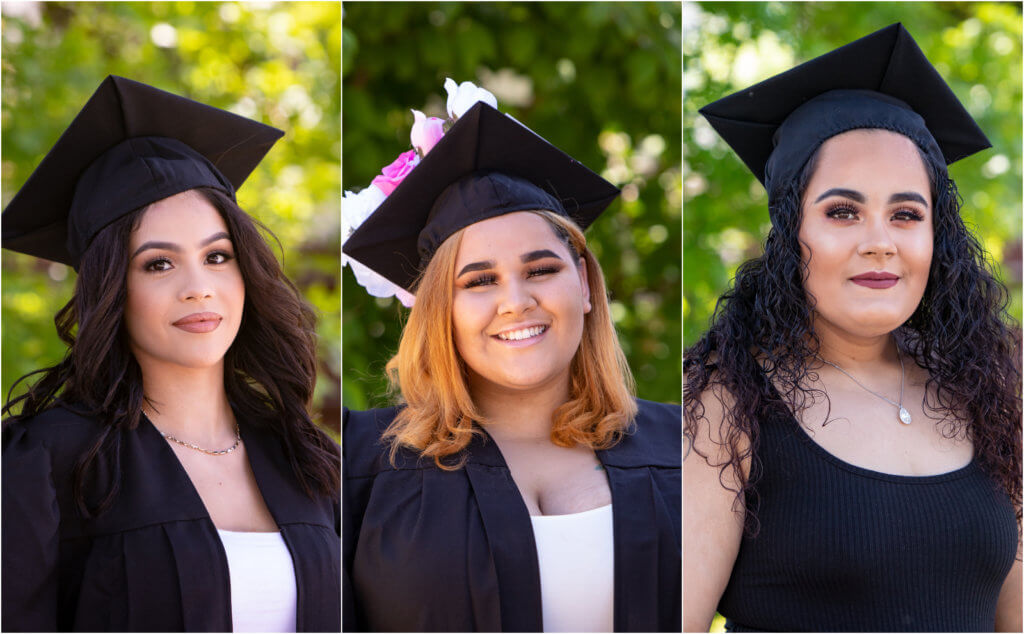
Kedlyam Rodriguez, Central Falls
Alazea Lichtenberger, Pawtucket
Jorayma Borges, Central Falls
Photography and co-production of this segment by Josephine Sittenfeld.
Borges: I had rough high school years. When I first started high school, my first year and a half, I went to school consistently. But then, I became homeless. I lost my car. We lost everything. And I ended up having to work three jobs.
I’m proud of the young lady I’ve become, the mom I’ve become.
Coronavirus actually brought my family together. The only thing that really hurt was the school things I wanted to experience. My senior prom, my senior field trip.
Lichtenberger: I used to say I’m not going to make it. And here I am.
I’m becoming a young adult and it’s time to get my life together. We are the next generation. We’re here for peace and to make our community environment better.
Rodriguez: I’m really excited to graduate. It’s been a long time. A lot of us have felt like, you know, ‘they’re not even going to finish high school.’ And Nowell [Leadership Academy] has made it to empower us. And they let us know that we are strong kids and that we need to speak and that we are these powerful people that will change the world.
Borges: Sometimes I’m nervous because my stepson is black, my boyfriend’s black. But I support the good protesting. I support the fact that we should be heard.
Rodriguez: And I feel like we are ready for anything that’s thrown at us. We are very smart. This is just the beginning of so much more change in the world.
Music for this series comes from the Blue Dot Sessions
About this project
When the COVID pandemic shut down Rhode Island’s schools in mid-March, it was clear the decision would have special significance for the high school seniors of 2020. After twelve years of work, they’d go without the typical trappings of their final months in school: no proms, no extended goodbyes, no graduation ceremonies.
We thought it would be valuable to hear from those students in Rhode Island.
But, as the pandemic wore on, and the protests began, it became clear that the original scope of the project was too small. As the world changes, we became more interested in recent graduates’ thoughts on the future they’re inheriting.
Ultimately, the students we spoke to are the result of numerous emails and phone calls, (as well as a number of false-starts.) While these stories are powerful, they do not represent the breadth of the experiences and feelings of this diverse and dynamic group of young people, and they aren’t meant to.
The project is not complete. We want to hear more.
Are you a young person, recently graduated from high school in Rhode Island or the South Coast of Massachusetts? If so, please share your story.
– John Bender, education reporter for The Public’s Radio
The Public’s Radio takes pride in serving you by providing well-researched, thought provoking journalism you can trust.

Share This Series
The Public’s Radio is made possible by people just like you. Thank you for your support.